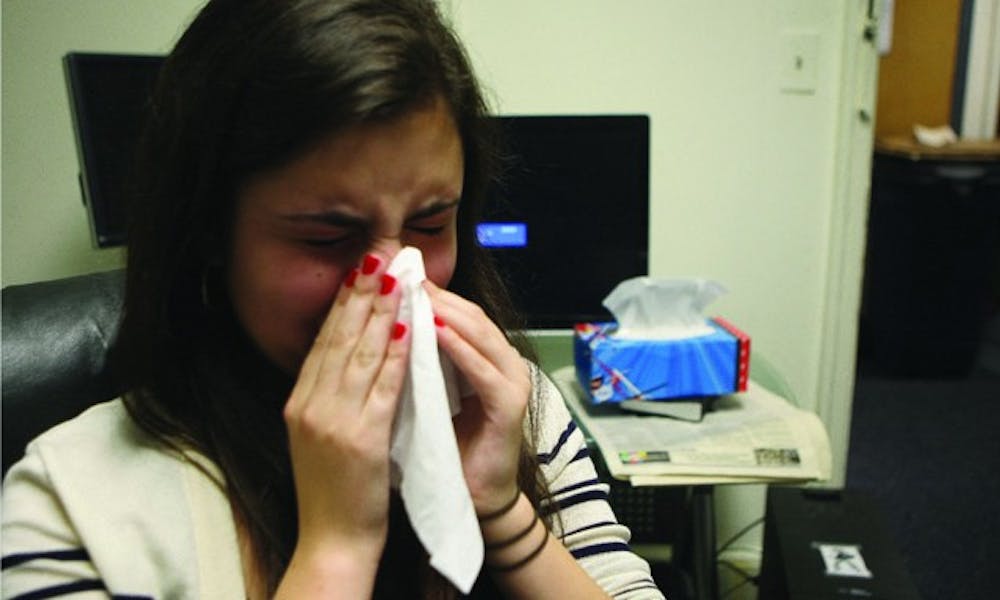As the weather grows colder, students’ temperatures may start to rise.
More students visit Duke Student Health in the fall and winter months than any other time of the year, Jean Hanson, administrative director of Duke Student Health, wrote in an email last Thursday. The N.C. Department of Health and Human Services has not reported any flu cases yet this season, Hanson said, but Student Health is currently working to minimize the impact of sickness on campus as the flu season approaches.
“In terms of illness, the winter months are busier,” Hanson said. “As people spend more time inside in the dorms, there is a greater opportunity to spread illnesses, especially respiratory or gastrointestinal illnesses.”
Student Health had 33,055 patient encounters from July 1, 2010, to June 30, 2011, Kevin Welch, Student Health’s associate director of business and finance, wrote in an email Tuesday. Welch defined a patient encounter as “any time a service is provided to a student,” including clinic visits and phone contact. In the fall and winter, the clinic had 20,847 patient encounters, compared to 7,954 in the spring and 4,254 in the summer, Welch said, adding that this is partially due to fall and winter being the times when the campus is most heavily populated.
Hanson noted that not all patient encounters immediately relate to illness.
“September is often a busy month as students return from summer break and need refills, testing, etc.,” Hanson said. “April is extremely busy with all our travel clinics as students prepare for DukeEngage or summer study abroad. There are also those that are graduating and realize they need that last minute physical.”
Top reasons that students visit the clinic include immunizations, upper respiratory infections, allergy desensitizations, screening for sexually transmitted infections, coughs and anxiety, Hanson said.
The number of students visiting Counseling and Psychological Services increases over the course of the semester, said Jeff Kulley, assistant director for clinical services at CAPS.
“We had 1,675 students come in last year,” he said. “That number is students who came in in-person and did the computer assessment. That number increased from 1,505 the year before.”
A similar number of students were served via telephone consultations, Kulley said. CAPS visits are counted separately from Student Health’s assessment of patient encounters.
The most common causes for students seeking treatment stem from anxiety, self-esteem and procrastination issues, Kulley noted. Some students come to CAPS because they are already stressed and saw their grades fall as a result, he added. With other students, the grades drop first and then their stress level increases, he said.
“Stress mounts partly because of sleep deprivation. Sleep deprivation can [also] contribute to colds,” Kulley said.
Getting enough sleep helps prevent increased stress that can cause people to get sick, Kulley added.
Students can take additional measures to stay healthy.
“The very best way to avoid most illnesses is to wash your hands frequently—[and] always before eating,” Hanson said. “Keep your hands away from your face. Cover a cough or sneeze with your elbow—not your hand.”
Hanson also recommended getting a flu shot each year.
“This year the School of Nursing collaborated with Student Health and Housing, Dining and Residence Life and did a series of 18 clinics in the East Campus dorms and the Marketplace,” she said. “They vaccinated about 1,000 students, double the total from last year.”
The annual Bryan Center Flu Clinic will be held Oct. 21, offering free flu vaccines to Duke students.
Get The Chronicle straight to your inbox
Signup for our weekly newsletter. Cancel at any time.

